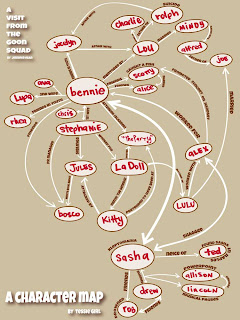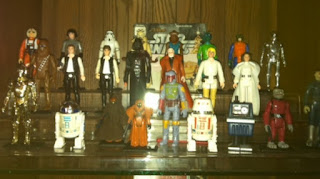Madeleine L'Engle
Madeleine L'Engle, the author of probably my favorite book as a kid, A Wrinkle In Time, has died at 88. Following the many links and tributes around the web I found on her website her acceptance speech for the 1963 Newberry Medal Award:
So how do we do it? We can’t just sit down at our typewriters and turn out explosive material. I took a course in college on Chaucer, one of the most explosive, imaginative, and far-reaching in influence of all writers. And I’ll never forget going to the final exam and being asked why Chaucer used certain verbal devices, certain adjectives, why he had certain characters behave in certain ways. And I wrote in a white heat of fury, “I don’t think Chaucer had any idea why he did any of these things. That isn’t the way people write.”
I believe this as strongly now as I did then. Most of what is best in writing isn’t done deliberately.
Do I mean, then, that an author should sit around like a phony Zen Buddhist in his pad, drinking endless cups of espresso coffee and waiting for inspiration to descend upon him? That isn’t the way the writer works, either. I heard a famous author say once that the hardest part of writing a book was making yourself sit down at the typewriter. I know what he meant. Unless a writer works constantly to improve and refine the tools of his trade they will be useless instruments if and when the moment of inspiration, of revelation, does come. This is the moment when a writer is spoken through, the moment that a writer must accept with gratitude and humility, and then attempt, as best he can, to communicate to others.
A writer of fantasy, fairy tale, or myth must inevitably discover that he is not writing out of his own knowledge or experience, but out of something both deeper and wider. I think that fantasy must possess the author and simply use him. I know that this is true of A Wrinkle in Time. I can’t possibly tell you how I came to write it. It was simply a book I had to write. I had no choice. And it was only after it was written that I realized what some of it meant.
So how do we do it? We can’t just sit down at our typewriters and turn out explosive material. I took a course in college on Chaucer, one of the most explosive, imaginative, and far-reaching in influence of all writers. And I’ll never forget going to the final exam and being asked why Chaucer used certain verbal devices, certain adjectives, why he had certain characters behave in certain ways. And I wrote in a white heat of fury, “I don’t think Chaucer had any idea why he did any of these things. That isn’t the way people write.”
I believe this as strongly now as I did then. Most of what is best in writing isn’t done deliberately.
Do I mean, then, that an author should sit around like a phony Zen Buddhist in his pad, drinking endless cups of espresso coffee and waiting for inspiration to descend upon him? That isn’t the way the writer works, either. I heard a famous author say once that the hardest part of writing a book was making yourself sit down at the typewriter. I know what he meant. Unless a writer works constantly to improve and refine the tools of his trade they will be useless instruments if and when the moment of inspiration, of revelation, does come. This is the moment when a writer is spoken through, the moment that a writer must accept with gratitude and humility, and then attempt, as best he can, to communicate to others.
A writer of fantasy, fairy tale, or myth must inevitably discover that he is not writing out of his own knowledge or experience, but out of something both deeper and wider. I think that fantasy must possess the author and simply use him. I know that this is true of A Wrinkle in Time. I can’t possibly tell you how I came to write it. It was simply a book I had to write. I had no choice. And it was only after it was written that I realized what some of it meant.


Comments